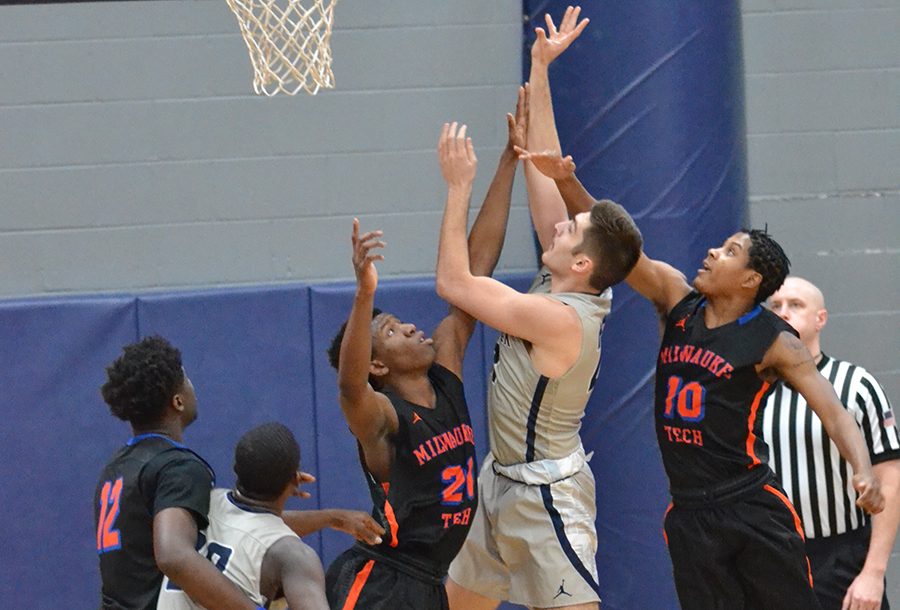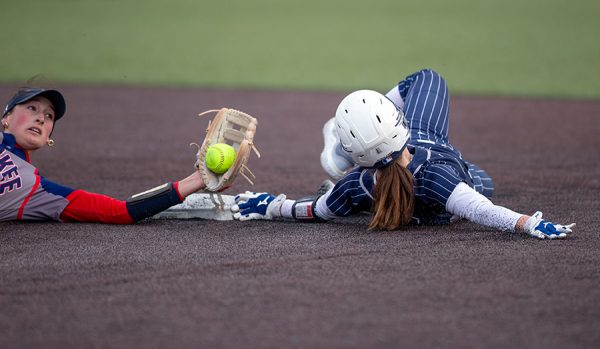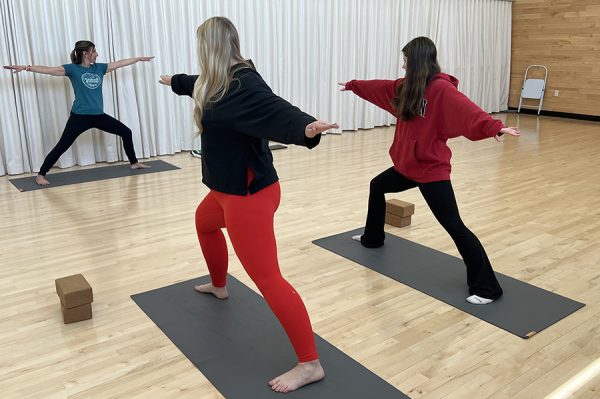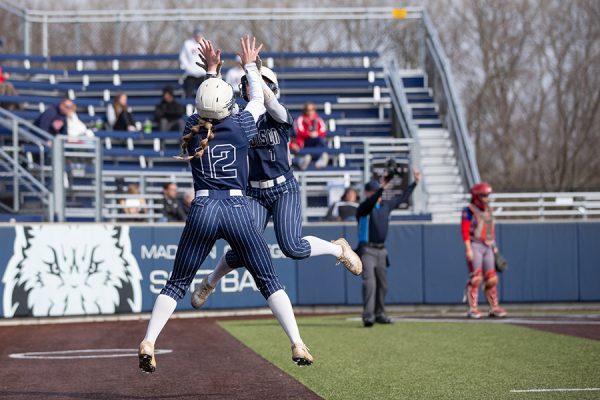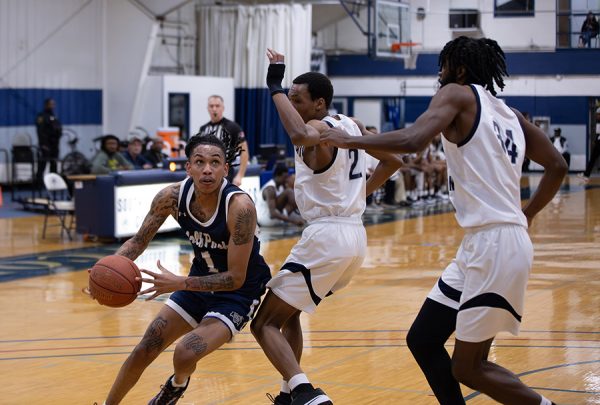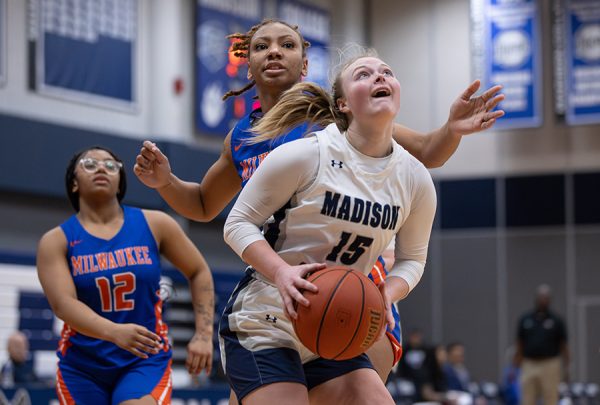Small numbers get big results: WolfPack men’s basketball team finds ways to win even when shorthanded
Madison College’s Alex Easterday shoots over a Milwaukee Area Technical College defender during the WolfPack’s 93-81 victory on Jan. 10.
January 16, 2018
The Madison College men’s basketball team has a small roster this year with only nine players.
The roster was even smaller during the team’s 93-81 win on Jan. 10 against Milwaukee Area Technical College, when both Jezzriah Burton and Jeffery Marcum missed the game on due to injury.
This left only two players to come off the bench.
The lack of players was apparent to everyone in the gym when looking at the benches. Milwaukee had a bench with 14 players compared to Madison College’s nine. Milwaukee also saw 10 players getting playing time while Madison College had only seven.
“We can’t play as aggressively as we’d like to because we’re worried about foul trouble,” said interim head coach Bill Kegler on having a short bench. It’s also a challenge because players are expected to play more minutes, he added.
In fact, every active player on the Madison College roster played extensively in the Jan. 10 game, as they have throughout the season. None of them played less than 19 minutes against Milwaukee.
Tyree Young led the team with 14 points, seven rebounds and eight assists. Sean Schomel had 18 points, Marcus Riser 15 points, Alex Easterday 14 points and Deshawn Black 12 points.
But playing more minutes makes it harder for players to catch a breather during the game.
“We talk a lot to our guys about getting to the free throw line, so they can take a rest when they’re at the free throw line,” Kegler said.
Getting the other team to take their timeouts helps as well “It’s a game with in the game” Said Kegler.
Having a small roster also affects Kegler’s strategy off the court. To make sure players aren’t being over-worked, the team will take a light approach to practice whenever possible, having more classroom sessions.
Having a smaller roster does have positives though. When asked what it’s like to manage a smaller roster, Kegler gave an immediate answer of “easier.”
Expanding on that, he said, “It makes your rotation as far as getting minutes for everyone easier… It’s actually easier when you have lower numbers. When you have more numbers you have more moving parts.”
Smaller numbers can also have a positive impact on practice, Kegler said.
“It makes your reps in practice more consistent, so everyone is getting more reps in practice,” he said.
Players say the smaller roster allows the players a chance to bond more than they would with a bigger roster.
“We had larger numbers at the beginning and we weren’t too close at all, now we can sit in the locker room for 15-20 minuets and just talk,” said Jezzriah Burton.
At this point in the season the WolfPack is used to having a smaller roster.
“It’s just what we do and who we are, and a part of how we play,” Kegler said.


